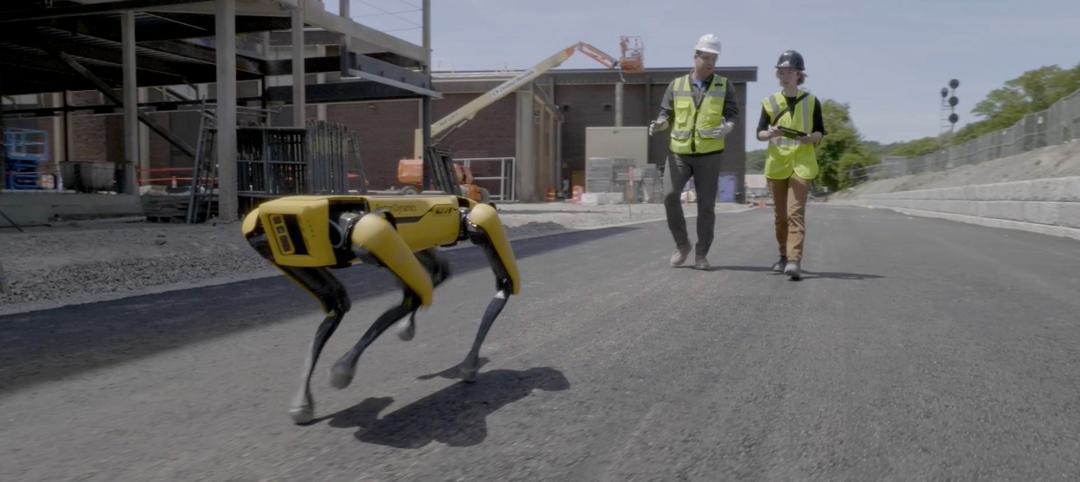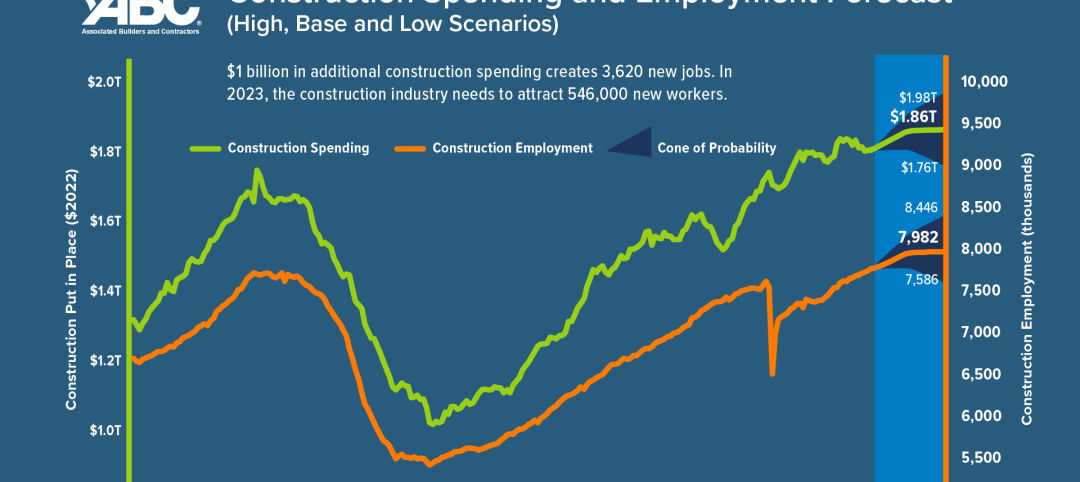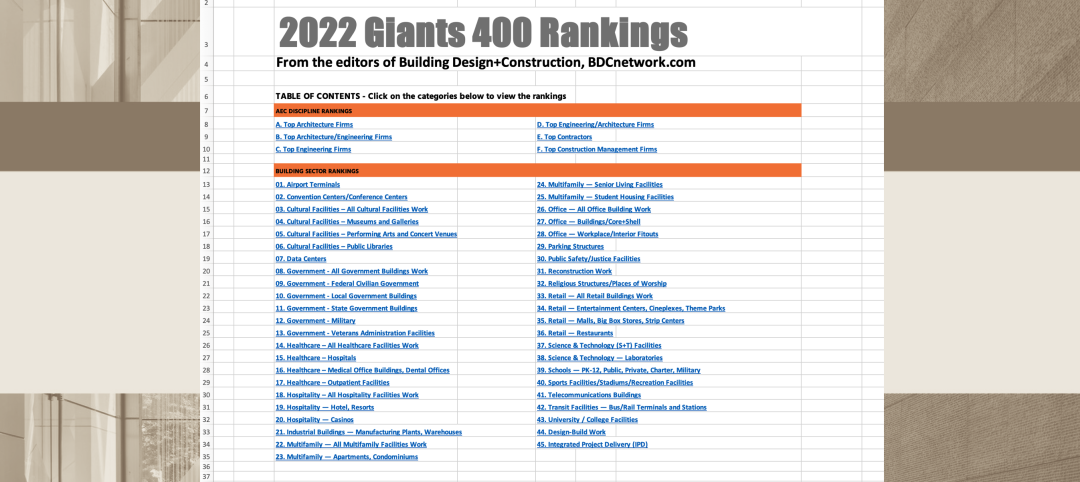The American Institute of Architects (AIA) today announced the publication of a white paper on the nation’s $3 trillion public infrastructure crisis and how public private partnerships (P3) offer a possible solution.
The AIA also announced that it was co-sponsoring with Governing Magazine the May 12 Summit on Infrastructure & Public Private Partnerships, a conference geared for state and local government officials tasked with updating their infrastructure, but who lack the means to do so.
“Building-Up: How States Utilize Public-Private Partnerships for Social & Vertical Infrastructure,” chronicles the public infrastructure crisis facing the United States and how states have found themselves facing sizeable budgetary shortfalls amid a stock of aging highways, public buildings and water distribution systems.
Through case studies, the white paper cites examples of innovative solutions used by the states and localities to combat this crisis while capitalizing on the P3 model for a variety of infrastructure needs. It includes a map highlighting a number of the current non-transportation P3s from around the country.
To help government optimize the value of P3 and its long-term quality implications, the AIA is co-sponsoring with Governing Magazine the May 12 Summit on Infrastructure & Public Private Partnerships (P3), a conference geared for state and local government officials tasked with updating their infrastructure.
A recent study by Governing Magazine found that half of all state and local leaders surveyed believe that a lack of infrastructure investment is their most significant financial problem. The summit will address the needs of local officials contemplating major infrastructure projects and who are trying to decide if a P3 is suitable for their jurisdictions.
Among the topics to be addressed:
- Evaluating, pricing and managing risk
- Defining clear project goals and cost projections
- Insights from industry experts on life-cycle cost considerations and private sector equity
- Case Studies - Public sector leaders who have implemented P3 will share lessons learned and tips for success
While P3 is a financing concept gaining popularity worldwide, it is under-utilized in the U.S., relative to other countries, according to Governing. The single biggest barrier is a lack of public-sector expertise in negotiating what can be complex, long-term agreements that assume risk on behalf of taxpayers. This Summit will share best practices, lessons learned and case studies that will help governments negotiate successful agreements and common pitfalls.
Related Stories
Multifamily Housing | Apr 4, 2023
Acing your multifamily housing amenities for the modern renter
Eighty-seven percent of residents consider amenities when signing or renewing a lease. Here are three essential amenity areas to focus on, according to market research and trends.
Sustainability | Apr 4, 2023
NIBS report: Decarbonizing the U.S. building sector will require massive, coordinated effort
Decarbonizing the building sector will require a massive, strategic, and coordinated effort by the public and private sectors, according to a report by the National Institute of Building Sciences (NIBS).
Multifamily Housing | Mar 24, 2023
Average size of new apartments dropped sharply in 2022
The average size of new apartments in 2022 dropped sharply in 2022, as tracked by RentCafe. Across the U.S., the average new apartment size was 887 sf, down 30 sf from 2021, which was the largest year-over-year decrease.
Multifamily Housing | Mar 14, 2023
Multifamily housing rent rates remain flat in February 2023
Multifamily housing asking rents remained the same for a second straight month in February 2023, at a national average rate of $1,702, according to the new National Multifamily Report from Yardi Matrix. As the economy continues to adjust in the post-pandemic period, year-over-year growth continued its ongoing decline.
AEC Tech | Mar 14, 2023
Skanska tests robots to keep construction sites clean
What if we could increase consistency and efficiency with housekeeping by automating this process with a robot? Introducing: Spot.
Industry Research | Mar 9, 2023
Construction labor gap worsens amid more funding for new infrastructure, commercial projects
The U.S. construction industry needs to attract an estimated 546,000 additional workers on top of the normal pace of hiring in 2023 to meet demand for labor, according to a model developed by Associated Builders and Contractors. The construction industry averaged more than 390,000 job openings per month in 2022.
Industry Research | Mar 2, 2023
Watch: Findings from Gensler's latest workplace survey of 2,000 office workers
Gensler's Janet Pogue McLaurin discusses the findings in the firm's 2022 Workplace Survey, based on responses from more than 2,000 workers in 10 industry sectors.
Architects | Feb 24, 2023
7 takeaways from HKS’s yearlong study on brain health in the workplace
Managing distractions, avoiding multitasking, and cognitive training are key to staff wellbeing and productivity, according to a yearlong study of HKS employees in partnership with the University of Texas at Dallas’ Center for BrainHealth.
Office Buildings | Feb 9, 2023
Post-Covid Manhattan office market rebound gaining momentum
Office workers in Manhattan continue to return to their workplaces in sufficient numbers for many of their employers to maintain or expand their footprint in the city, according to a survey of more than 140 major Manhattan office employers conducted in January by The Partnership for New York City.
Giants 400 | Feb 9, 2023
New Giants 400 download: Get the complete at-a-glance 2022 Giants 400 rankings in Excel
See how your architecture, engineering, or construction firm stacks up against the nation's AEC Giants. For more than 45 years, the editors of Building Design+Construction have surveyed the largest AEC firms in the U.S./Canada to create the annual Giants 400 report. This year, a record 519 firms participated in the Giants 400 report. The final report includes 137 rankings across 25 building sectors and specialty categories.

















